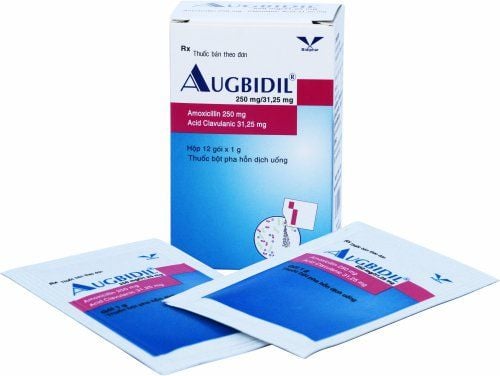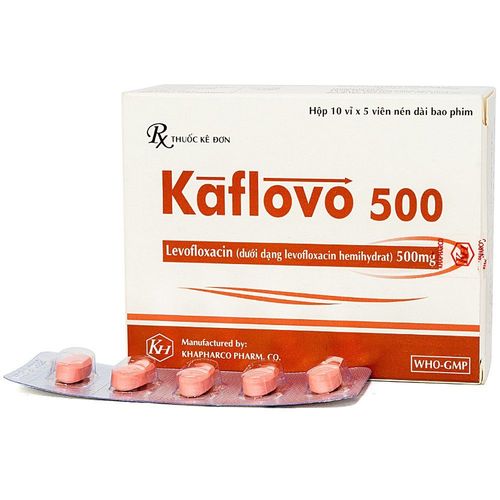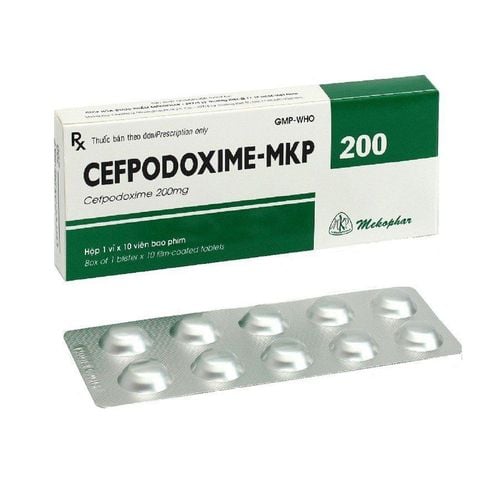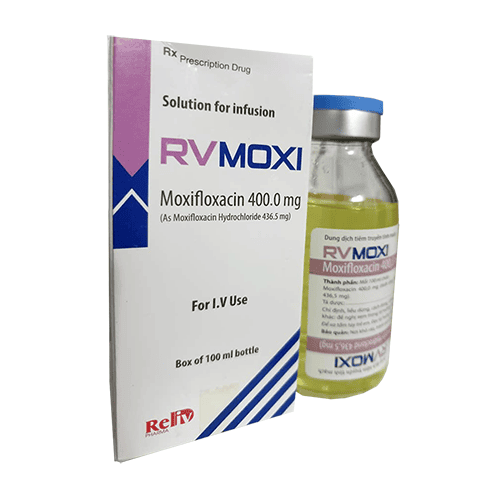This is an automatically translated article.
Tabracef 125 is a medicine used in the treatment of mild to moderate infections commonly seen in diseases such as otitis media, pharyngitis, pharyngitis or tonsillitis. To learn about the uses of Tabracef 125 and detailed instructions for use, you can refer to the information in the article below.1. Some effects of Tabracef 125
Tabracef 125 is a drug belonging to the group of parasites, anti-infectives, antivirals and antifungals with the composition Cefdinir 125 mg. This is a component with antibacterial activity, having broad ability against gram-negative and gram-positive bacteria such as Staphylococcus sp, Streptococcus sp.2. Indications and contraindications
Tabracef 125 is indicated in the following cases:
People with acute bacterial otitis media. Patients with acute maxillary sinusitis. People with pharyngitis or tonsillitis. Uncomplicated cases of skin and skin structure infections. Contraindications:
Tabracef 125 is contraindicated for people who are sensitive to Cefdinir and other antibiotics of the Cephalosporin group, Penicillin.
3. Dosage and how to use Tabracef 125
3.1. Dosage for adults Depending on the disease, the dose of Tabracef 125 has certain differences such as:
People with community-acquired pneumonia: Use at a dose of 300mg every 12 hours, taking it continuously for 10 days. People with chronic bronchitis: Use at a dose of 300mg every 12 hours for 5-10 days or a dose of 600mg every 24 hours for 10 days. Patients with acute maxillary sinusitis: 300mg every 12 hours or 600mg every 24 hours, continuously for 10 days. People with pharyngitis, tonsillitis: You take 300mg every 12 hours for 5-10 days or 600mg every 24 hours, taking it continuously for 10 days. People with uncomplicated skin infections: Use at a dose of 300mg 300mg every 12 hours, continuously for 10 days. 3.2. Dosage of Tabracef 125 for children For children from 13 years old, use the same dose as adults.
For children from 6 months to 12 years old, the recommended dosage is as follows:
In case of acute bacterial otitis media: Take at a dose of 7mg/kg every 12 hours for 5-10 days or 14mg/kg every 24 hours for 10 days. In case of acute maxillary sinusitis: Oral dose of 7mg/kg every 12 hours or 14mg/kg every 24 hours for 10 days. In case of pharyngitis, tonsillitis: Oral dose of 7mg/kg every 12 hours for 5-10 days or 14mg/kg every 24 hours for 10 days. In case of uncomplicated skin and skin structure infections: Oral dose of 7mg/kg every 12 hours for 10 days. The above information is for reference only, you should take the medicine as prescribed by your doctor. Absolutely do not use at a high, low dose or for a longer time than indicated.
4. Common side effects of Tabracef 125
During the use of Tabracef 125, some common side effects include:
Abdominal pain, diarrhea, nausea. Headache, itchy rash on the skin. Feeling tired inside.
5. Drug interactions
The use of Tabracef 125 with some of the following medicines may change its ability to work or increase the risk of side effects:
Concomitant use of Tabracef 125 with iron-containing drugs or antacids will cause risk of decreased absorption of cefdinir. In case it is necessary to take these two drugs together to treat the disease, you should take Cefdinir 2 hours before or after taking Tabracef 125. Co-administration with Probenecid will reduce the renal excretion of Cefdinir. In addition, you need to inform your doctor or pharmacist of all medications, vitamins, minerals and supplements that you are taking to avoid unwanted interactions.
6. Handling when missed dose or overdose Tabracef
You should pay attention to use Tabracef 125 at the time prescribed by the doctor. Taking the medicine at the right time will ensure the best effect of the medicine. In addition, you can also take the medicine 1-2 hours apart from the time ordered by your doctor. If you miss a dose and it's almost time for your next dose, you can skip the previous dose. Do not take 2 doses at the same time.
When overdosed, some common signs of poisoning include nausea, vomiting, epigastric pain, diarrhea, convulsions,... At this time, dialysis is the method usually prescribed by doctors, especially in cases of impaired renal function.
7. Some notes when using Tabracef 125
During the use of Tabracef 125, patients should note:
Caution when using Tabracef 125 for patients with a history of colitis. In case of renal failure with creatinine clearance < 30ml/min, the dose of Tabracef 125 should be reduced. Use with caution in pregnant or lactating women, only when prescribed by a specialist. In the event of an allergic reaction to Cefdinir, the patient should discontinue treatment and institute appropriate therapeutic measures. Above is information on drug effects of Tabracef 125 and instructions for proper use. You need to pay attention to taking the medicine at the time prescribed by the doctor, do not take the medicine for too long, which can cause the development of drug-resistant bacteria.
Please dial HOTLINE for more information or register for an appointment HERE. Download MyVinmec app to make appointments faster and to manage your bookings easily.













